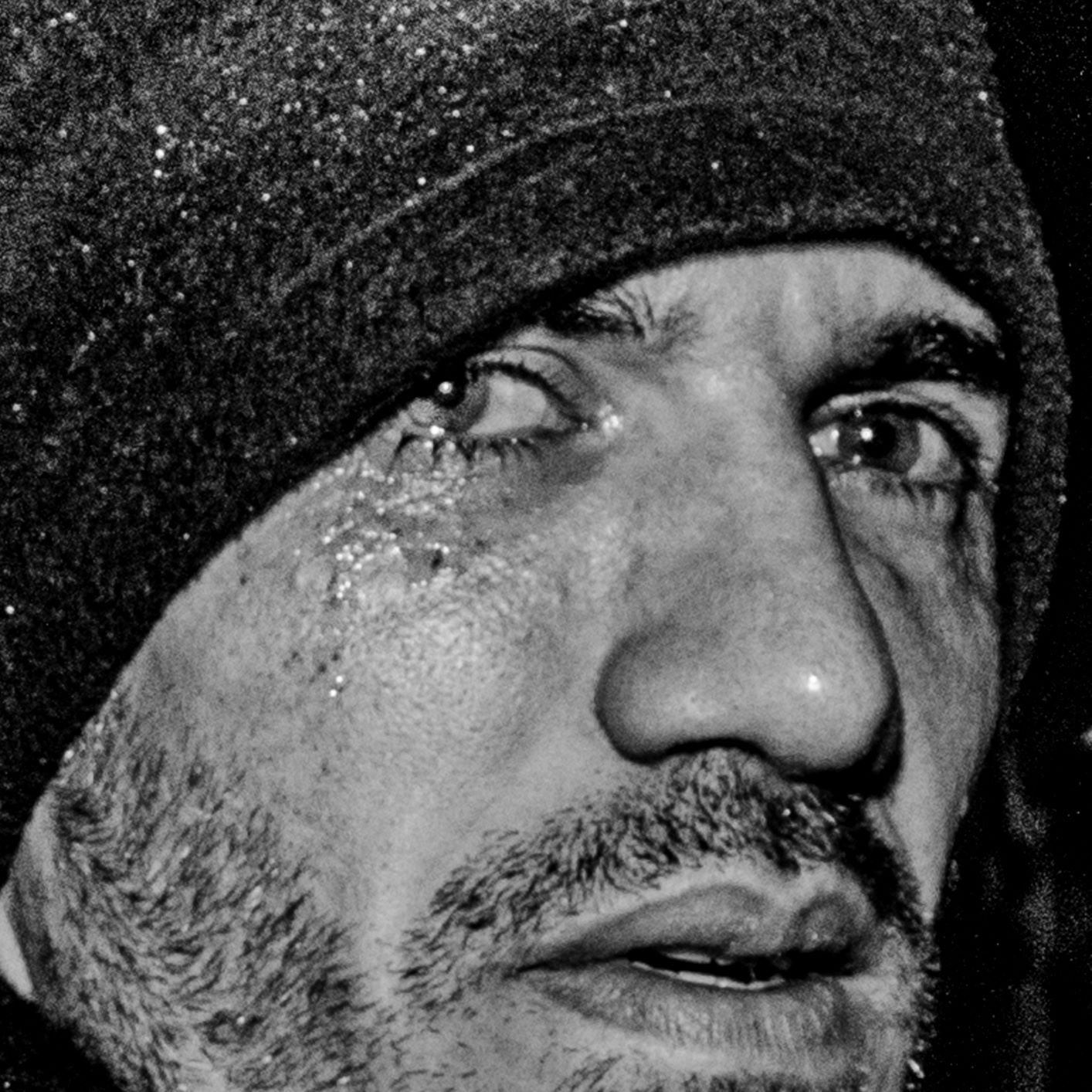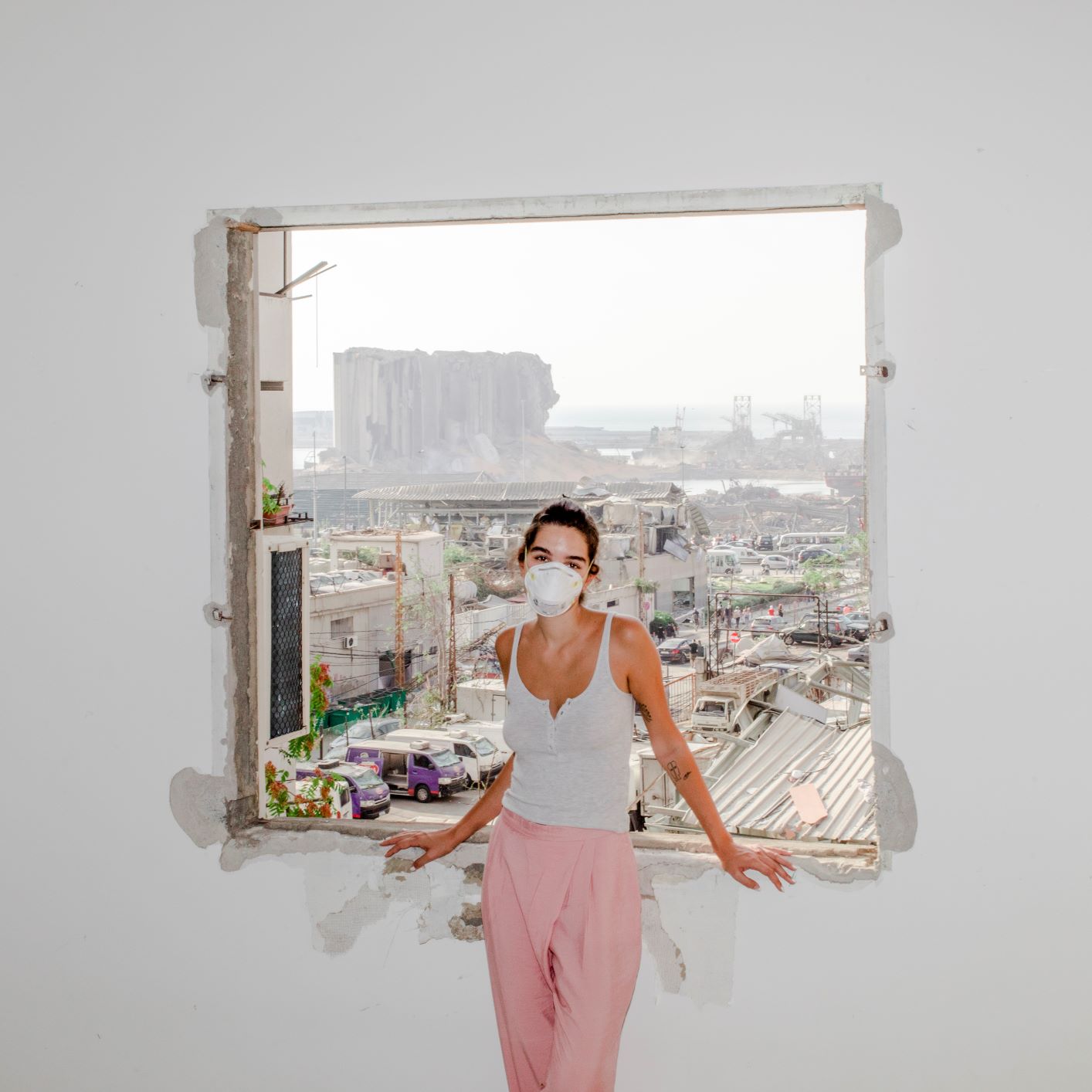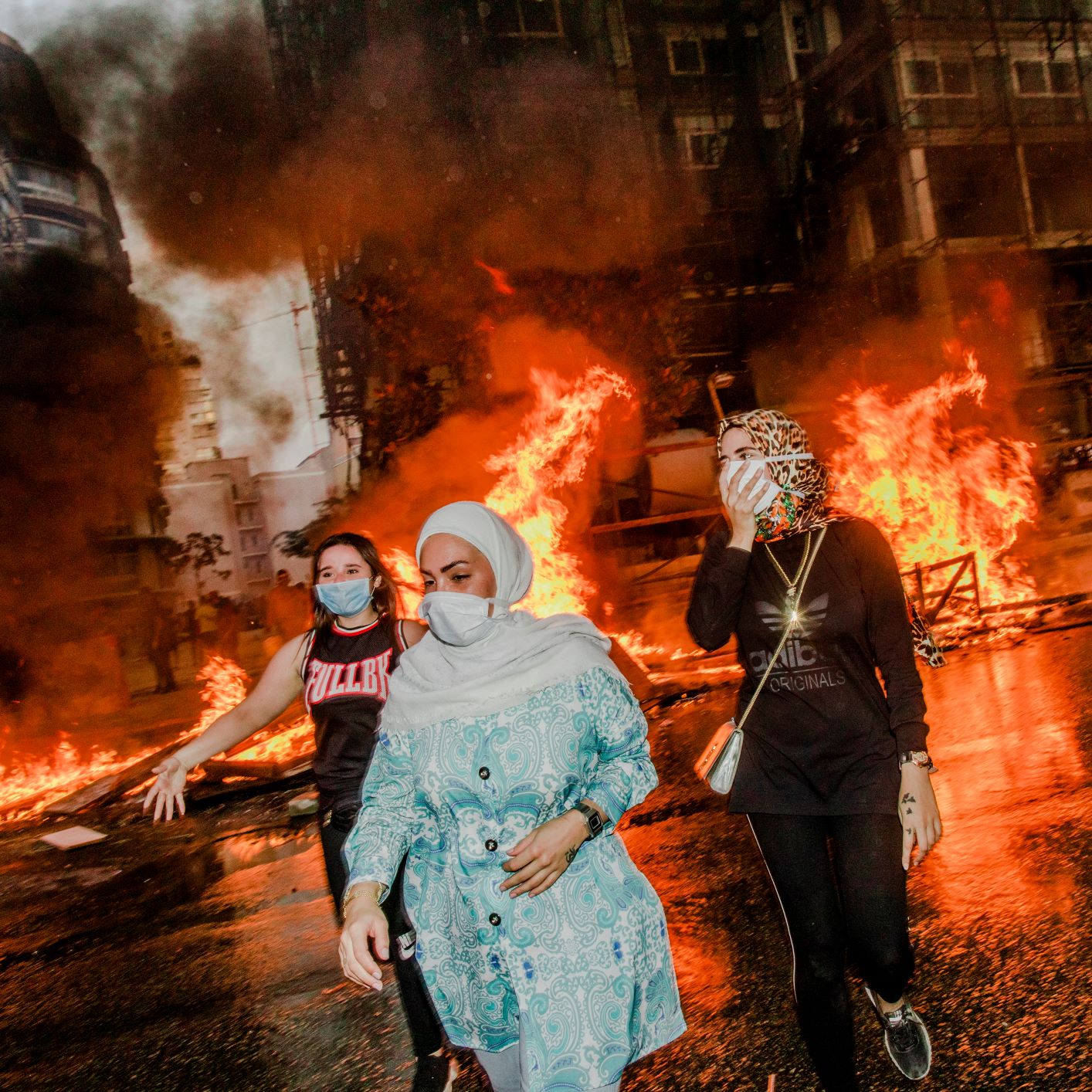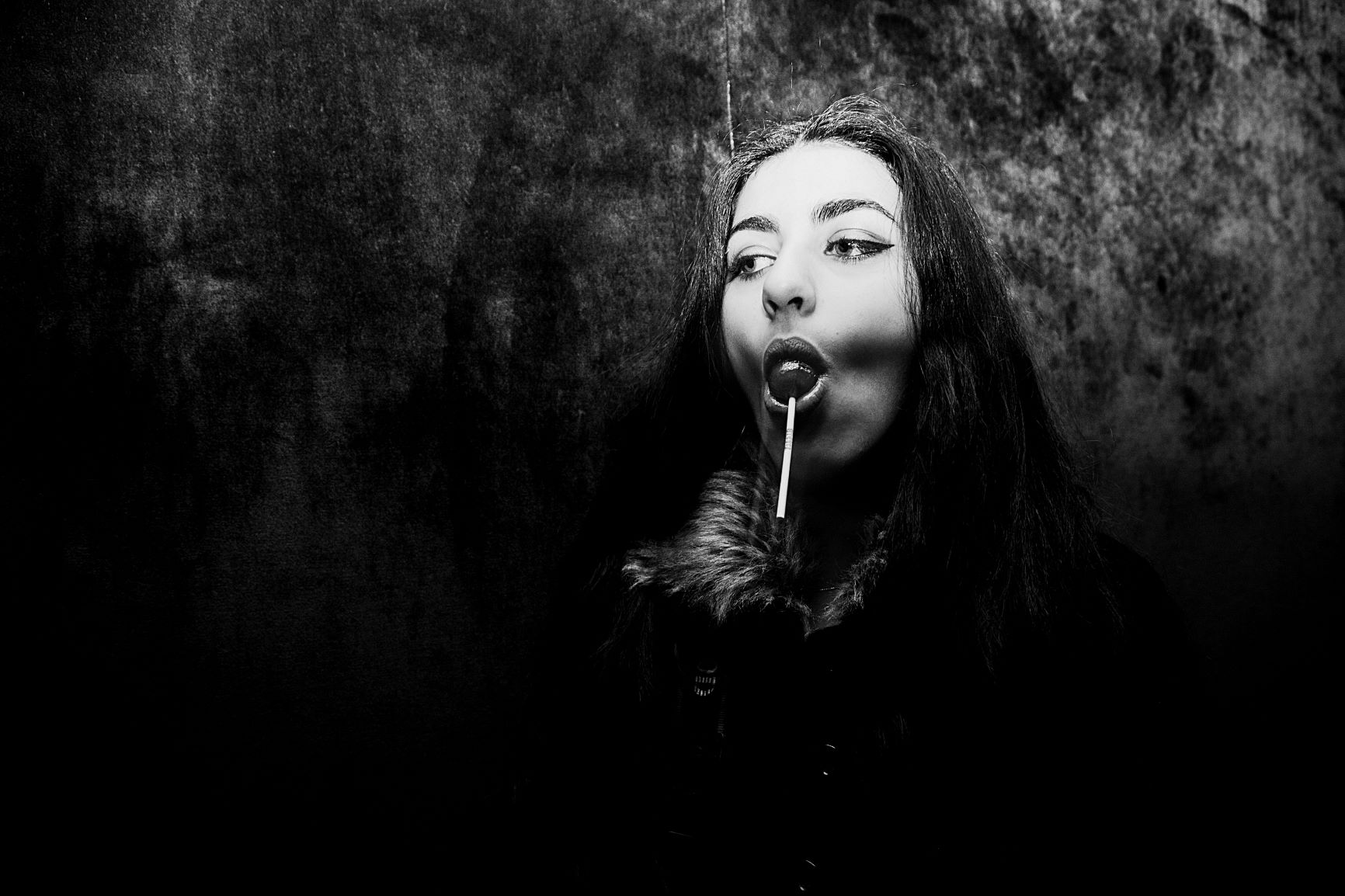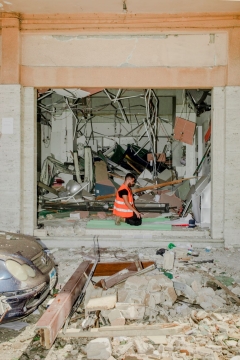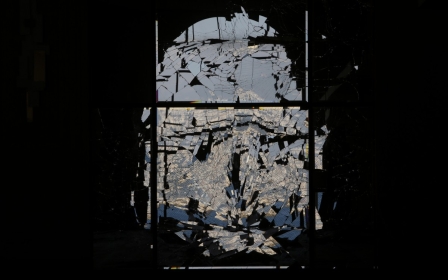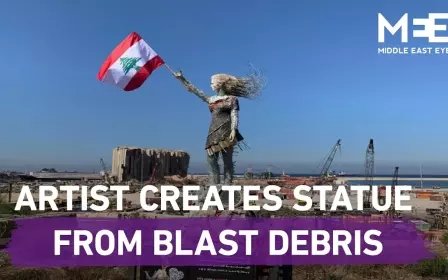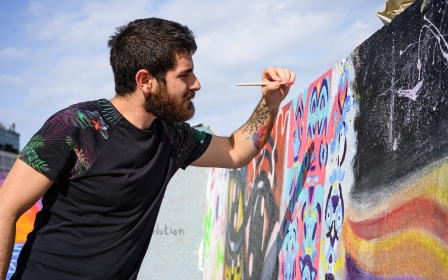Beirut photographer Myriam Boulos searches for tenderness amid destruction
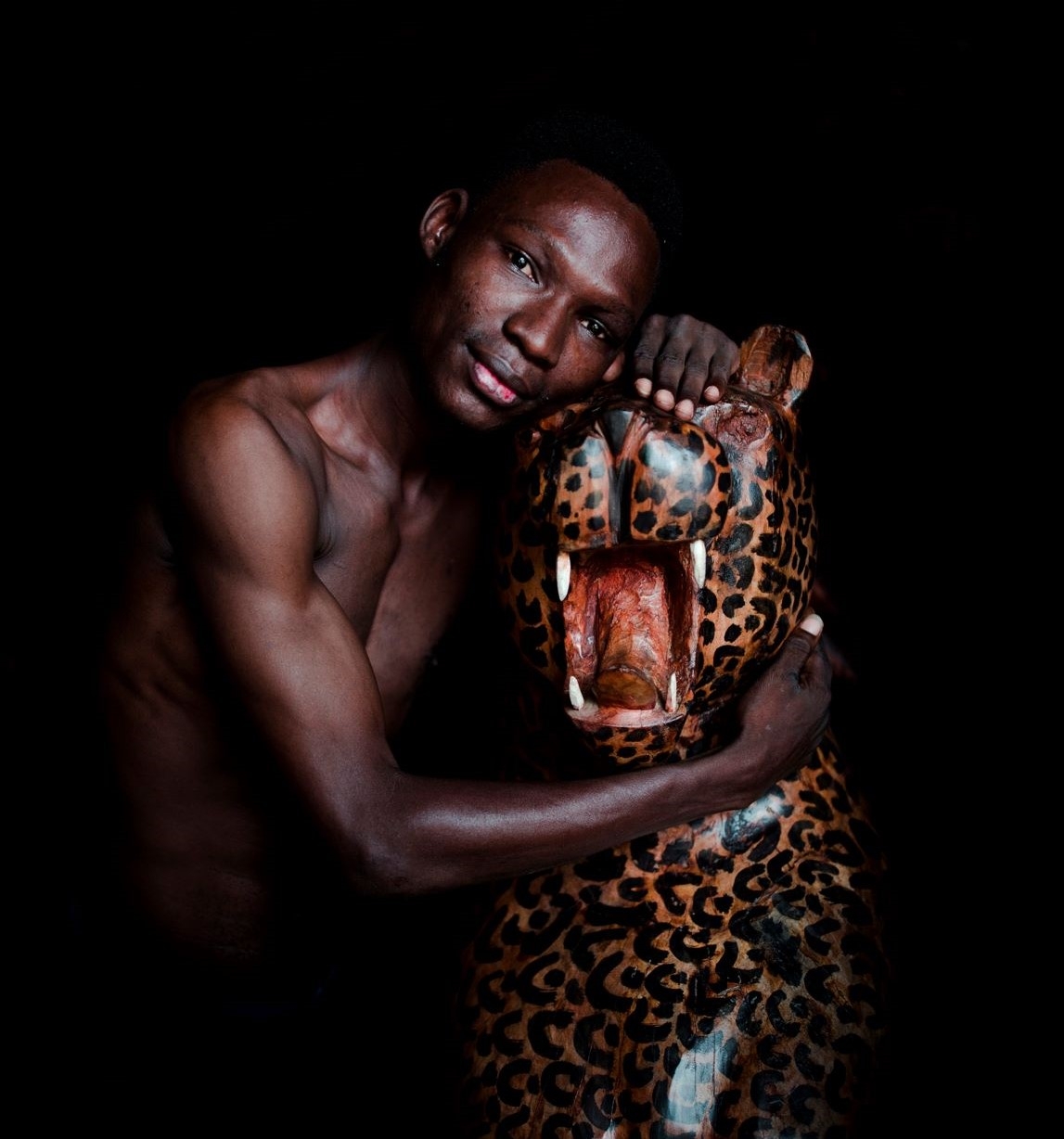
Myriam Boulos has captured a tumultuous period in Lebanese history for Time, Vogue and Vanity Fair. The photographer's work documented Lebanon as the country reckoned with - and continues to reckon with - widespread protests that began in October 2019, an economy in freefall and the devastating port blast in August 2020.
The Lebanese artist is part of a new generation of photographers in the Middle East that includes Fatima Zohra Serri, Malak el-Sawi and Ali al-Shehabi. They are documenting the realities and complexities of their countries, as well as the post-Arab Spring unrest that has rippled through the region in the past decade.
Boulos, a graduate of Academie Libanaise des Beaux-Arts, was born in 1992, in the shadow of the Lebanese Civil War, which officially ended in 1990. The photographer sees her work as “a mix of documentary and personal diary” and began her career by using her camera to question Beirut, its people and her place among them.
A theme that surfaces often in her work is the parallel between the body and Beirut: the former is oppressed by patriarchy while the latter is oppressed by Lebanon’s corrupt political class.
“There is a real need to re-appropriate our city and our bodies,” says Boulos, who explores power and gender politics by capturing those who are often overlooked and marginalised in modern Lebanon. The photographer’s work humanises migrant workers, members of the LGBTQ community, young protesters and emergency responders.
New MEE newsletter: Jerusalem Dispatch
Sign up to get the latest insights and analysis on Israel-Palestine, alongside Turkey Unpacked and other MEE newsletters
Questioning masculinity
Boulos’s work often places a new gaze on men through intimate and quietly vulnerable shots that challenge outdated tropes about what it means to be a man. She photographs men who cry, wear drag and kiss their boyfriends.
In Tenderness, the photographer's ongoing black and white series, men are often shot with a harsh flash and depicted in “a raw and vulnerable state, metaphorically mirroring the crudeness of the urban environment”, she said in a previous interview.
While attending Jeux de la Francophonie, a cultural and sporting event for French-speaking nations, in Ivory Coast in 2017, Boulos shot her photo series Douce Virilite.
The series features photographs Boulos took while walking around the de facto capital Abidjan and is accompanied by the line: “One afternoon in Abidjan makes me realise how wrong and sad Beirut's definition and approach of masculinity is.”
Boulos is frank about what questions she hopes her work provokes about masculinity: “Any question - really anything - that would question patriarchy.”
The photographer says she creates images as she doesn’t know how to answer this kind of question with words, but knows a response is nevertheless needed. “One of the issues,” she says, is that “toxic masculinity is everywhere, and it is normalised”.
Consent
Boulos often mixes portraiture and eroticism, depicting nude subjects in both empowering and vulnerable poses. For these shots, she approaches her subjects with consideration “in all senses of the word”.
“Consent is important every step of the way; while taking the images and after, too, if I am going to publish one of the images in a publication, at an exhibition, or on Instagram.”
Boulos recalls how, when she was a university student, she refused an invitation to a photoshoot by a well-known male photographer after getting an uneasy feeling. She was later told, he regularly used shoots as an opportunity to assault women. “I think that even outside of photography and images, men rarely get the concept of consent,” she says.
In a world of exploitation and revenge porn, where women often lack control over their bodies and image, the photographer's respect and consideration for the people she photographs are central to her work.
Her thoughtful approach and growing reputation as a photographer means that people often want to collaborate with her and create intimate images together. Boulos views taking these photos as a two-way process, with both her and the person in front of the camera getting something out of the encounter.
Often her subjects are hoping to reflect a sense of newness in their photographs with Boulos. “I remember a friend telling me a few years ago that she felt new and needed a new gaze on her,” the photographer says.
“I realise now, one year after the beginning of the revolution, that getting naked in the city and taking these kinds of pictures was our way of claiming the city as ours," Boulos adds.
"It sounds very childish or even like a dog pissing on his territory, but it was much needed! The revolution was also a way of doing this by being together in public spaces, in our streets, in our city."
'An awakening'
Boulos’s high-voltage coverage of the anti-government protests that spread throughout Lebanon after the government's attempt to impose a tax on calls made on social networks (the so-called WhatsApp Tax), in October 2019, brought her to the attention of Time magazine.
Her images, which often used a strong flash reminiscent of club photography, were used by the global publication for much of its reporting on the protests in Lebanon, as well as the port blast in August.
While the young photographer gained international recognition for her coverage of the protests, she also received online criticism and abuse for depicting the violence involved.
Boulos rejects the oversimplification of the unrest. “I showed different social classes and some violence too at the beginning of the revolution. People only wanted to show the world a revolution with happy people holding hands. I took some pictures of this reality, but the revolution I saw and lived was much more complex than that,” she says.
For Boulos, what was important was her lived experience of the revolution. “I documented the things - moments, faces, details - that spoke to me,” she says. “My documentation of the revolution is how I lived it. For me, this revolution is an awakening, it is like getting out of an abusive relationship to finally say ‘No, this is not normal’. It is a way of putting words (and images!) on things that have been oppressing us for years and exteriorising them collectively.”
Amid the Covid-19 pandemic, and in the aftermath of the port blast in August, the photos of young Lebanese people at clubs and bars in Beirut that Boulos took for her earlier 2015 collection, Nightshift, feel of another era.
“In these pictures, I was questioning things like the patriarchy, capitalism, a fucked-up society and an oppressive system that are still very much present despite the dramatic change in the financial, socio-economic and political context,” says Boulos by email.
Port blast
In the chaos and horror of the port blast, Boulos often found small moments of beauty and stillness: a masked woman posing in her destroyed home with the explosion's epicentre behind her; a badly injured performer posing defiantly for a camera; an emergency worker quietly praying among the rubble of a damaged building.
Boulos’s photographs of Nour Saliba, a community manager and model, and Andrea, a drag performer, were both taken in the aftermath of the blast and were included in Time’s Best Portraits of 2020.
Boulos recalls walking up the stairs in Saliba’s building in the Mar Mikhael neighbourhood and being unsure which was her apartment. “They were all the same: open and empty and destroyed,” she says.
The photographer met Andrea one week after the explosion, when, Boulos says, “the sun was strong. It was surreal. Everything was”. She remembers Andrea’s tears as he walked towards his house and saw it for the first time after the explosion had damaged it. The whole month after the blast was “a mix of tears and sweat and miracle and nightmare", she says.
Boulos has mixed emotions about her work being included in Time’s best portraits. “From one side I was happy, of course,” says the photographer. “From another side, this happiness was attached to an infinity of unresolved emotions. I still can’t find words for these emotions. They are much bigger than I can comprehend.”
The dynamics of oppression and liberation continue to interest Boulos, who is currently working on a project about the sexual fantasies of women in Lebanon. The photographer wants to show “women talking about their own fantasies, owning them and taking back what belongs to them”.
Boulos also continues to work on her photo series Tenderness, an ongoing project. She says: “In a city based on self-destruction, I am looking for tenderness."
Middle East Eye delivers independent and unrivalled coverage and analysis of the Middle East, North Africa and beyond. To learn more about republishing this content and the associated fees, please fill out this form. More about MEE can be found here.


